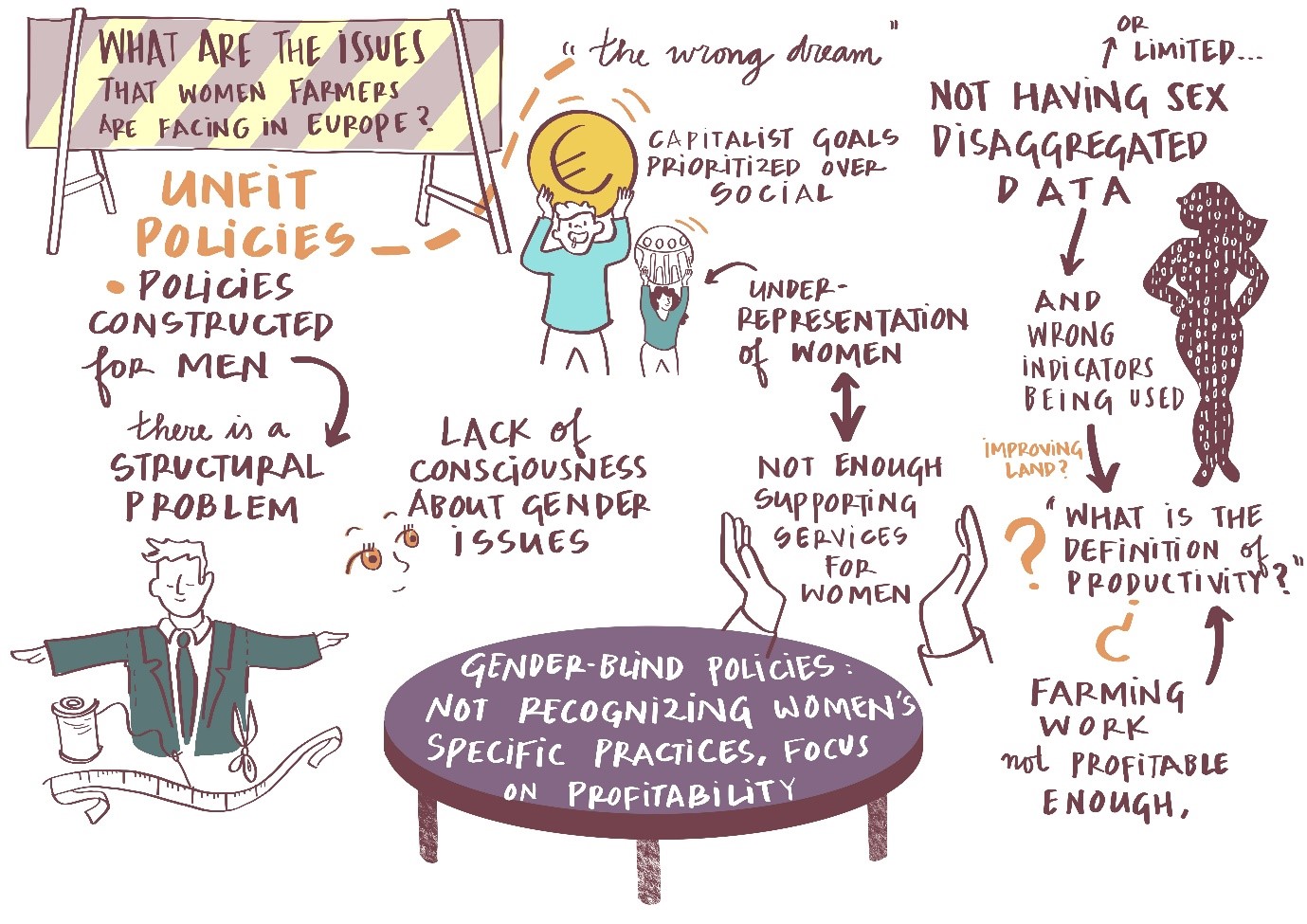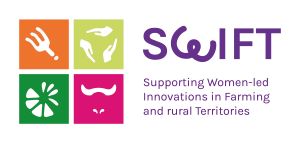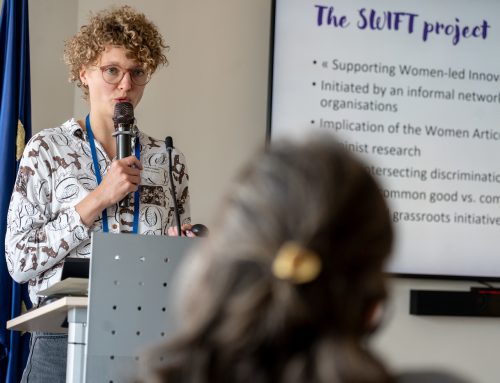Feature Image Credits: Tineke D’haese/Oxfam Belgium
Making european agricultural policies more gender transformative: exchanges on women’s needs and Gender Responsive Budgeting (GRB) as a way to address them.
In November 2023, 28 people participated in workshop GRB in Brussels. It was organised by Oxfam Belgium and farmers as well as other experts were invited. There were participants from Spain, Poland, Austria, Ghana, Bolivia, Vietnam, Belgium and the Netherlands, all linked to the SWIFT project in some way.
During the workshop, we learned to know each other, experts on GRB (from Austria, Vietnam, Bolivia and Ghana) shared their experiences, participants discussed about the challenges faced by women farmers, we look at the CAP and the interventions we should analyse, and, finally, we plan the next steps of the process.
Sharing GRB experiences

Judith du Faux/Visual Garden
Tania, a Programme Officer at Oxfam in Bolivia working in the influencing and citizenship department, reminded us that GRB was not a short-term task and the importance of making the process accessible to everybody. Therefore, in the Bolivian context, they must link with local communities and give the option to indigenous women to speak their own language. A strong participatory approach is need to voice women’s claims and needs as well as producing evidences to map the weaknesses to focus on.

Judith du Faux/Visual Garden
Theresia, Head of the Department of Rural Social Research and Library at the Austrian Federal Institute of Agricultural Economics, Rural and Mountain Research talked about the role of the civil society organisation in voicing the needs of women in rural areas. It is also important that there is a political willingness to implement gender mainstreaming issues; on the other hand, it is important that women groups and interest groups can express their needs and can be heard by public actors. Gender trainings are accessible at the ministry level and provincial/local level for local action groups of LEADER. It is decisive to monitor specific measures of the CAP Strategic Plan how gender-sensitive they are implemented. How is the access for women to these measures? How is the distribution of funding in these measures between male and female farmers?

Judith du Faux/Visual Garden
Huong is Senior Programme Manager at Oxfam in Vietnam, working among other things on governance and fiscal policy. She shared the need to address gender stereotypes and the rights of citizens to access to information and monitor how public budget is spent. Citizens, especially women, are not aware of their rights as a citizen and a tax-payer when it comes to public budgeting. Women/people could monitor where the money goes by using Public Expenditure Tracking tools (PET). It requires access to budget information and sex disaggregated data. Policy dialogues, advocacy actions and the strengthening of existing movement are also part of the strategies used by CSOs to aim for more transparent and equitable budget allocation and accountable budget spending.

Judith du Faux/Visual Garden
Emmanuel is Deputy Country Director at SEND Ghana, a major partner of Oxfam in Ghana working on policy, research and advocacy on many different themes including public financial management. He explained us that Ghana initiated preparatory activities to implement GRB: a memorandum, the formation of a steering group of representatives from key ministries, sex-disaggregated data collection in all ministries. Smallholders, especially women, were initially not consulted. The numerous responsibilities of women including farming, childcare, domestic chores (e.g. preparing meals), makes it difficult for them to have time to travel from their communities to the district capital to participate in the budget process. But thanks to the work of SEND GHANA and Oxfam in Ghana, women smallholder farmers have the opportunity to participate in the budget conversation. The discussions are taking place where the women are, in townhall meetings; based on the principle of “nothing about us without us”.
Barriers and gender equality goals
Following a world café format, we gathered insights from the participants about the challenges affecting women farmers in Europe and how current policies and budget do not address these issues appropriately.

Judith du Faux/Visual Garden

Judith du Faux/Visual Garden

Judith du Faux/Visual Garden
Based on the needs assessment above, we formulated our gender justice goals and priorities that CAP budgets should address to achieve gender justice.

Judith du Faux/Visual Garden
We discussed the priorities and some key issues came out:
- We need to have access to data to show the inequalities and address them
- We need to involve men to make them aware of the inequalities
- We need champions to lead by example
- CAP logic needs to change
- We need to work on the root causes = patriarchy, capitalism, racism, colonialism
- Visibilising is not enough, we need actions!
- We need to focus on renewal of agriculture

Judith du Faux/Visual Garden
Next steps
We finally discussed what were the next steps to work on Gender Responsive Budgeting within SWIFT. To be continued…
Acknowledgement
We thank again all the participants for the fruitful exchanges and we look forward to be working together.





Leave A Comment